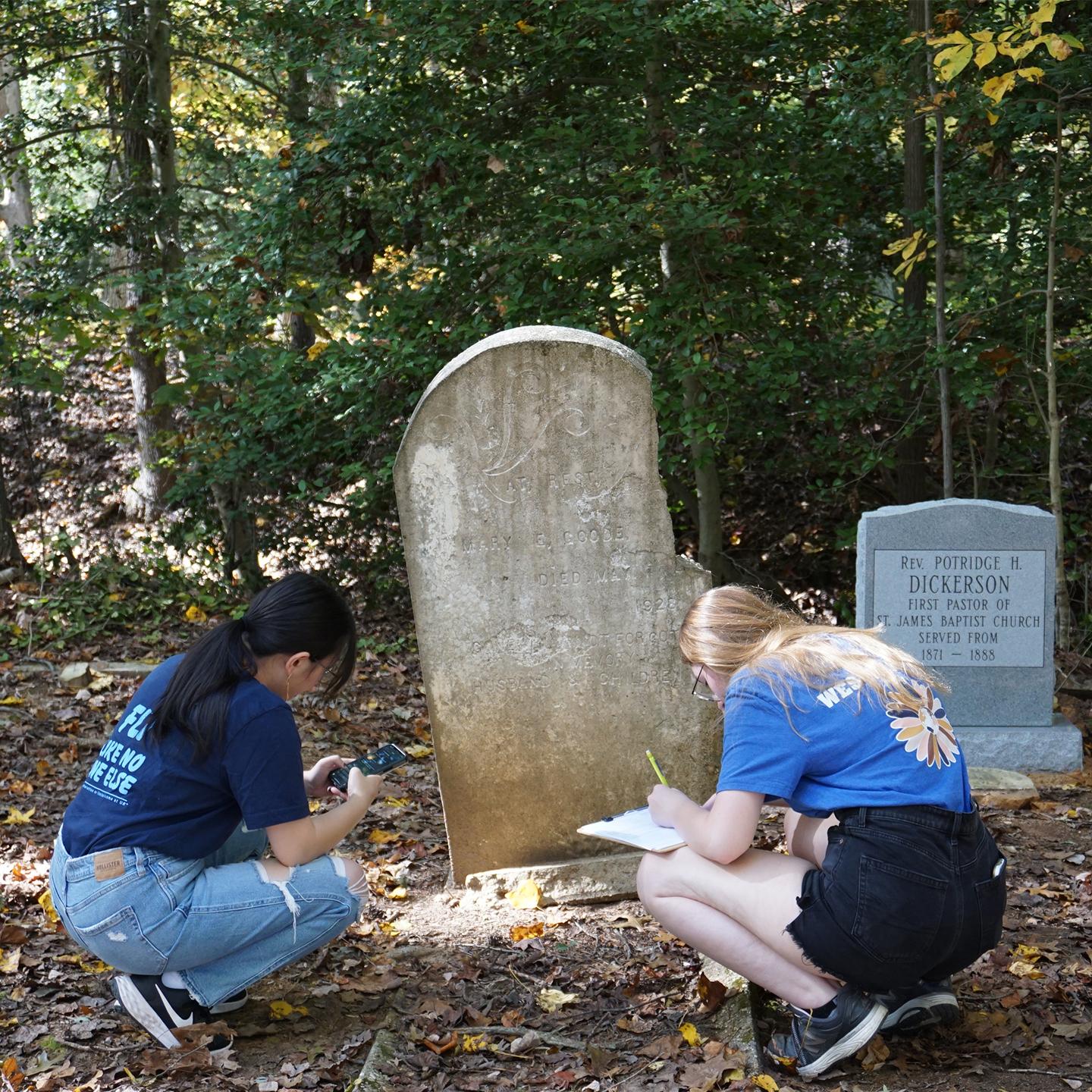
Collections Research
Classics students have opportunities to work with ancient coins and artifacts in several collections on campus, from the Ancient World Gallery and the Archaeology Lab to the Lora Robins Gallery. A class-related activity may inspire more focused research as an independent study, a summer fellowship project, or a senior thesis. Related Link

Archaeology Lab
In the Archaeology Lab (Humanities Building, room 115), students gain experience working with artifacts through archaeology coursework and/or as lab assistants. These artifacts include items that have been excavated or collected by the Introduction to Archaeology class and others that are part of the Ancient World Gallery collection.

Summer Research
The Department of Classical Studies offers the Gertrude Howland Summer Grant to support the participation of outstanding Classics and Archaeology students in non-credit experiential learning programs exploring the ancient cultures represented in the Ancient World Gallery (Egyptian, Greek, Roman, and neighboring cultures). Eligible programs include the summer seminars of the American School of Classical Studies in Athens and the American Academy in Rome and archaeological field schools throughout the Mediterranean region, but other programs may also be eligible.
Research funds are also available through Summer Research Fellowships through the School of Arts & Sciences. Fellowships are available for a minimum of 6 weeks and a maximum of 10 weeks and offer opportunities both on campus and off campus. Much of this research is funded by the Richmond Guarantee that is provided to undergraduates at the University.
Major Thesis
Guided by your special interests, you will be able to undertake original research as a participant in the Major Seminar. Examples of recent research written by classical studies majors are:- Love, Labor, and Leisure in Theocritus’ Bucolic Idylls
- The Shadow of Empire: Romanitas and Aemulatio Imperii
- Freezer Burn: Enslaved Women in Homer as Tangential Tools for Narrative
- Victory in Defeat: The Power of Loss and the Construction of the Myths of Cato Uticensis and Robert E. Lee
- Relative Clause Anastrophe in Cato's De Agri Cultura
- An Analysis of the Classical Roots of the US Capitol Building’s Architecture
- The Significance of Epiphany Dreams in Ancient Greece
- Violence in the time of Diocletian's Economic Reforms: The Egyptian Revolt of L. Domitius Domitianus
Scholarship Repository Readership
The University of Richmond's Scholarship Repository shares faculty publications with a worldwide audience. The map below shows where articles from classical studies faculty and students are being read around the globe.
Independent Study Projects
Ancient Greece and Rome provide a world of topics to study in greater depth than is possible in a formal course. Classics faculty are committed to mentoring students who want to deepen their understanding of a particular topic that may have been covered only cursorily in a regular course.
Independent study projects are student-designed programs arranged with a faculty director in advance of the semester in which the work is to be done. Projects have included classifying artifacts in the Gallery of the Ancient World and advanced readings in Greek and Latin.

Research Fellowships
Independent study and summer research projects may be supported by undergraduate research grants or summer research fellowships offered by the School of Arts & Sciences.
Many of our majors begin their research for the major thesis as A&S summer research fellows or in the Humanities Fellows program. A&S summer fellowships have also supported students in archaeological work with a faculty mentor abroad or here in Richmond.
Student Symposium
Majors and summer research fellows present their research at the A&S Student Symposium every spring.
